Pro-Kremlin media use the tense situation at the Russian-Ukrainian border to spread narratives targeting the annual NATO exercises and Ukraine
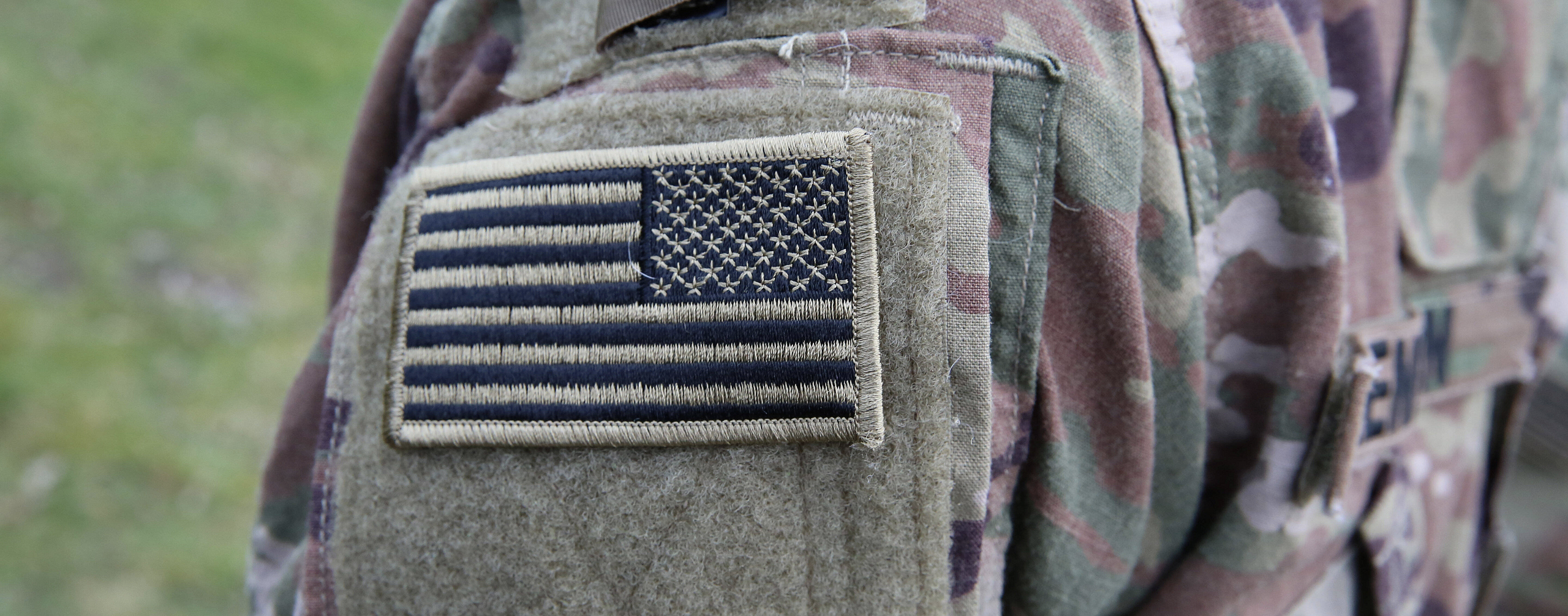
By Lukas Andriukaitis
Amid the tense situation at the Russian-Ukrainian border, pro-Kremlin media spread stories claiming that Defender Europe 21, an annual NATO military exercise, will serve as a pretext for NATO troop deployment near Crimea.
According to these various stories and social media posts, Defender Europe 21 will be used as an excuse to amass NATO troops on the border with Crimea and afford NATO allies the opportunity to practice with Ukraine for a war with Russia. To send this message, three overarching sub-narratives were used. One claimed that Kyiv and NATO are preparing to take back Crimea; a second claimed that the Kremlin is extending its warning signs not to “wake up the Russian bear”; and a third called Ukraine a free training ground for NATO troops. These narratives serve as an effective tool for domestic fearmongering targeting two of Russia’s main enemies simultaneously — Ukraine and NATO.
The DFRLab has previously published two reports on malign pro-Kremlin narratives targeting Ukraine amidst the recent buildup at the border. Russia announced in April 2021 its intention to withdraw troops from the border, but at the time of publishing, tens of thousands of troops remain in place.
Narrative 1: Kyiv mentions siding with NATO to fight for Crimea
The most prevalent narrative claimed that the upcoming annual exercise Defender Europe 21 will serve as NATO and Ukraine’s “preparation to fight a war for Crimea.” These articles included a quotation from Oleksiy Arestovich, the Ukrainian representative to the Trilateral Contact Group on Ukraine.
In an interview with the YouTube channel UKRLife.TV, Arestovich mentioned that Defender Europe 21 serves as NATO’s practice for a potential large-scale war with Russia. His comment was then used in various stories to suggest that NATO and Ukraine are preparing to fight Russia for Crimea together.
This narrative primarily spread on April 2–3, 2021. The most engaged story was published by RIA.ru, garnering thousands of engagements both via the outlet’s webpage and social media posts. In some of the less widely shared stories, the occupied region of Donbas was also mentioned as a potential NATO target, again based on the comment made by Arestovich.
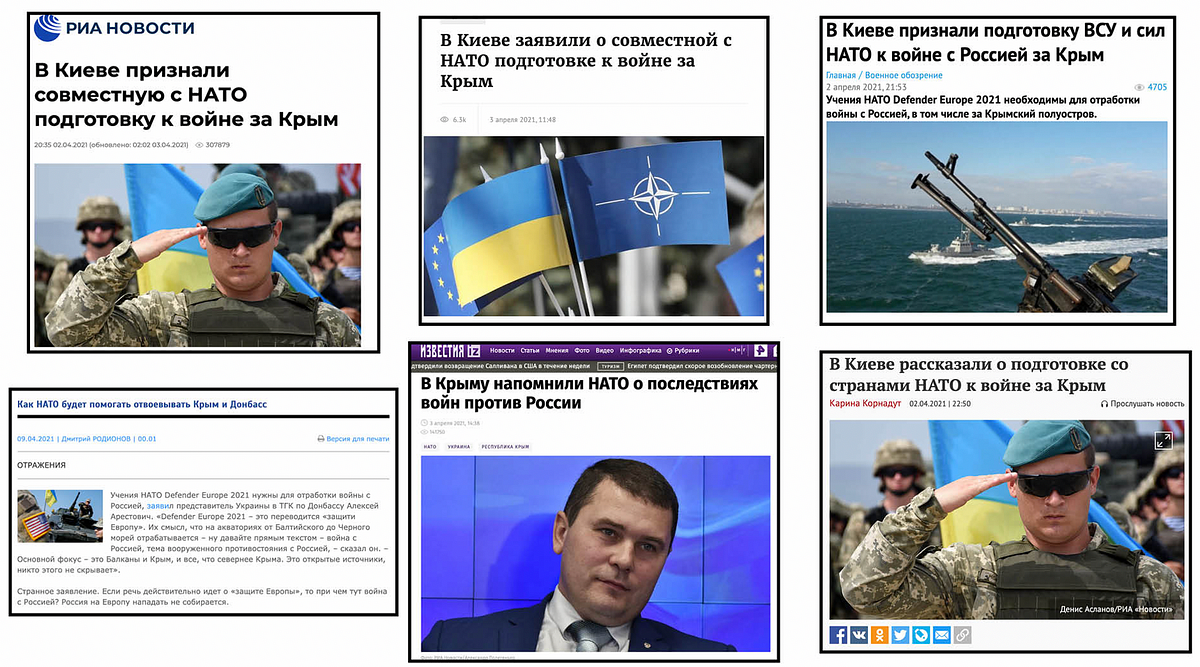
A similar narrative was also popular among Kremlin officials and quoted in these media articles. In early April 2021, Foreign Ministry spokesperson Maria Zakharova said that by organizing Defender Europe 21, NATO is gathering “preemptive strike forces” near the borders of Russia. On April 13, Russian Defense Minister Sergei Shoigu claimed that the United States and NATO are gathering forces on Russia’s borders.
Narrative 2: Do not wake the Russian bear
A similar narrative soon followed; this one warned that NATO should not “wake the Russian bear.” Stories with this narrative were primarily disseminated on April 3 and 4, 2021.
This narrative had a few similar stories, yet all of them warned the U.S. and NATO to back off. An April 3, an IZ.ru article quoted Mikhail Sheremet, State Duma deputy from the Crimean region, as saying that “potential aggression by Ukraine and NATO against Crimea will end in disaster for the initiators of the conflict.”
An April 3 article on lenta.ru quoted the co-chairman of the Assembly of Slavic Peoples of Crimea, Roman Chegrinets, warning NATO that “often military actions against Russia end in disaster and defeat,” and that NATO “should not wake the Russian bear.”
A similar story published on ria.ru quoted a parliamentarian from occupied Crimea, Yuri Gempel, as saying that Ukraine and NATO should not put themselves at mortal risk due to military exercises.
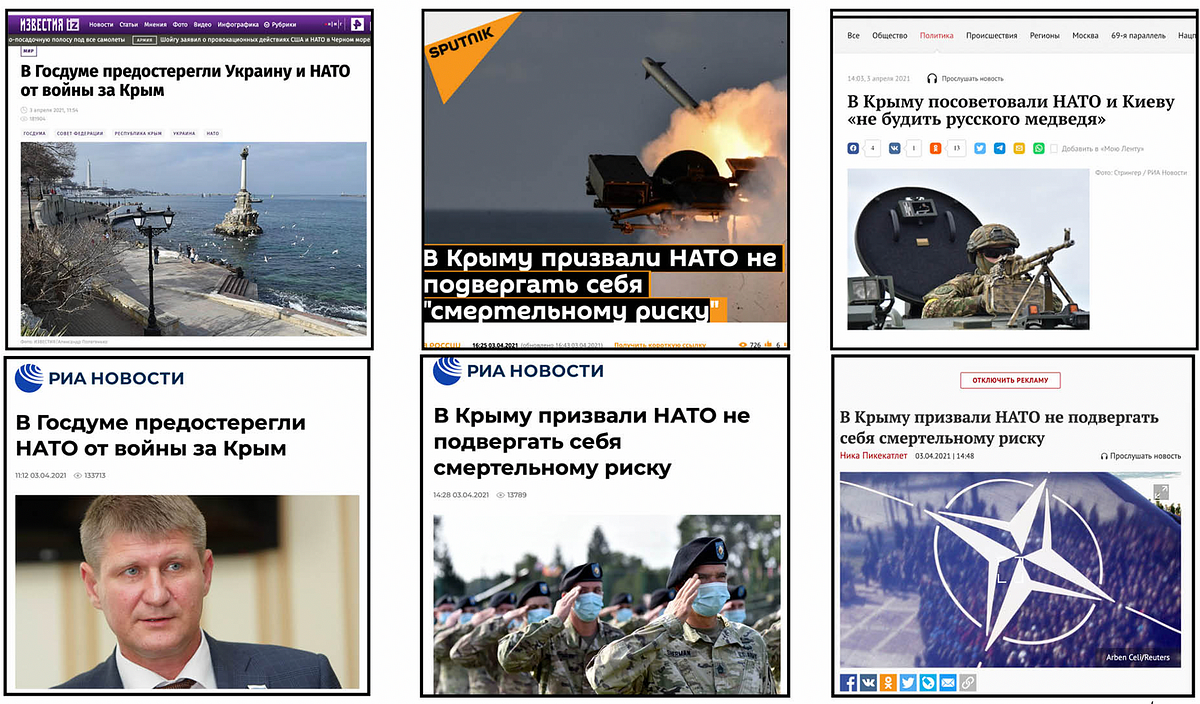
Narrative 3: Ukraine as a free training ground for NATO troops
Lastly, a narrative calling Ukraine the “free training ground for NATO” troops was disseminated around the same time.
Stories supporting this narrative mostly quoted a senator from the Crimean region, Sergei Tsekov, as saying that “Ukraine for NATO acts as a free training ground.” Tsekov’s statements were reported by ria.ru, and later republished on various media outlets. According to Tsekov, the time will come when Ukraine realizes that “NATO only starts wars around the world” and that it is an “aggressor, not a defender.”
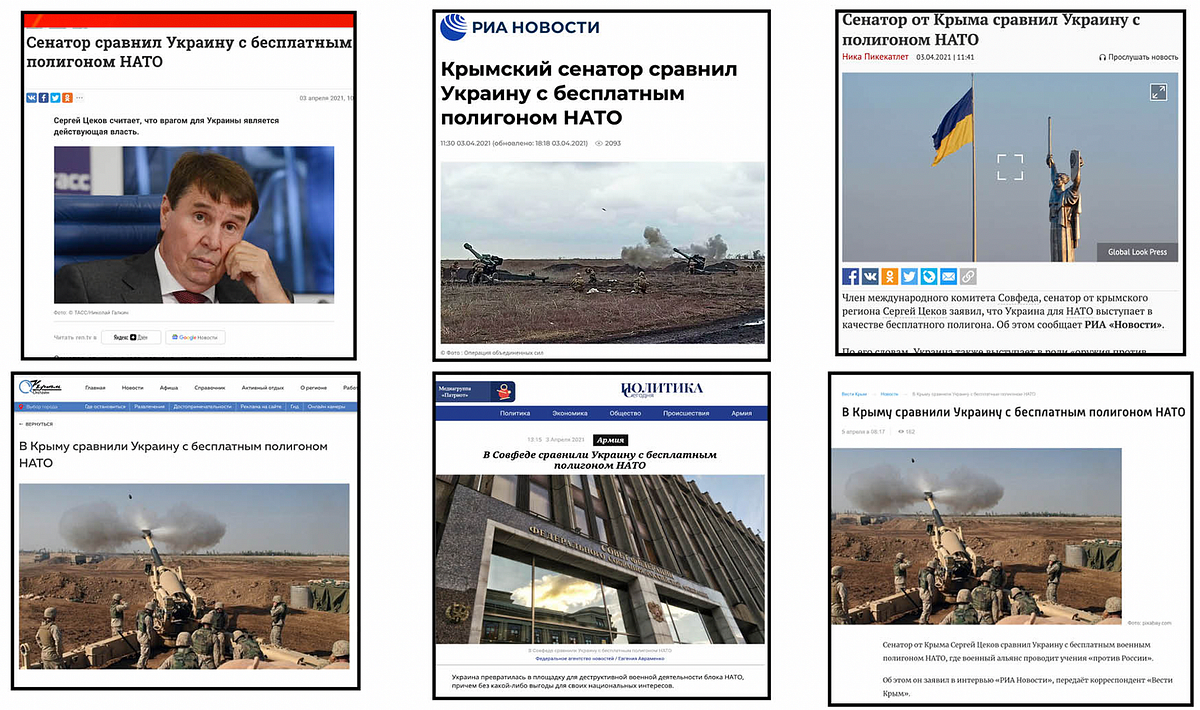
Engagement
Previous narratives targeting the annual Defender Europe exercises were spread in multiple languages. In contrast, this round of narratives was disseminated exclusively in Russian, suggesting they were targeting mostly Russian-language speakers to stoke animosity toward NATO and Ukraine.
Most of the stories received moderate engagement online. The original stories published in the larger pro-Kremlin media outlets garnered thousands of engagements, while the smaller outlets managed to receive engagement in the dozens, sometimes hundreds.
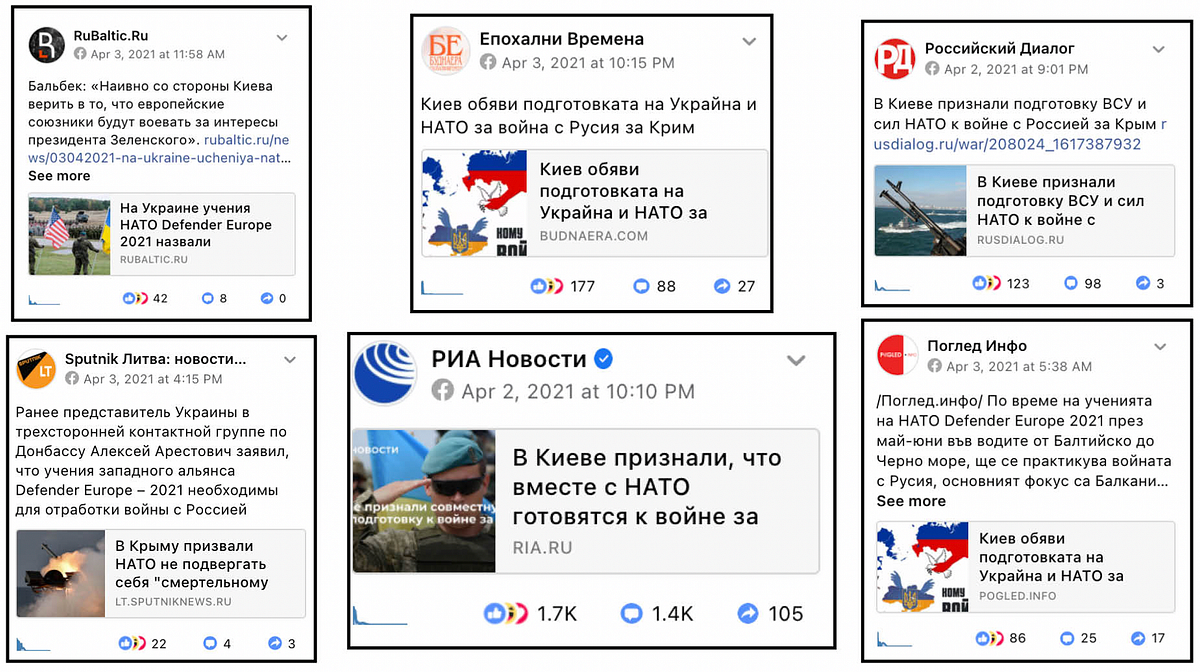
The DFRLab has previously reported on narratives targeting Defender Europe 21 in Western Europe, including pro-Kremlin media outlets in other European languages. As the exercise draws closer, more information campaigns of this kind are likely to emerge.
Lukas Andriukaitis is an Associate Director with the Digital Forensic Research Lab.
Cite this case study:
Lukas Andriukaitis, “Pro-Kremlin outlets target Defender Europe 2021 and Ukraine in one go,” Digital Forensic Research Lab (DFRLab), May 18, 2021, https://medium.com/dfrlab/pro-kremlin-outlets-target-defender-europe-2021-and-ukraine-in-one-go-fb7d07540c44.
Follow along for more in-depth analysis from our #DigitalSherlocks.

